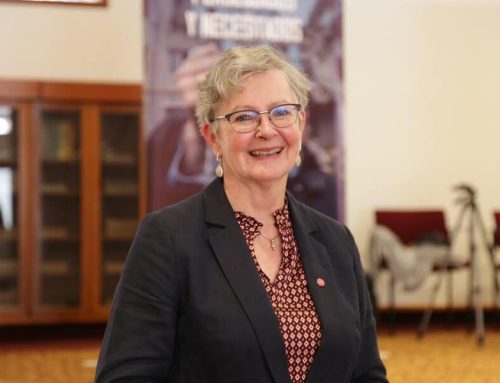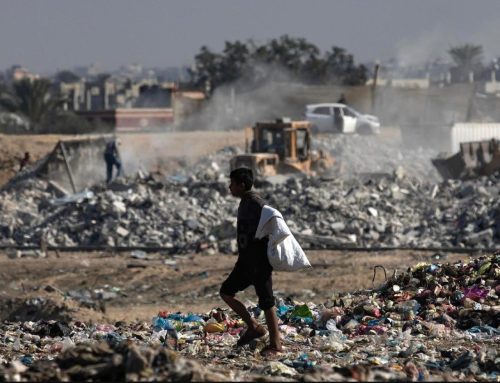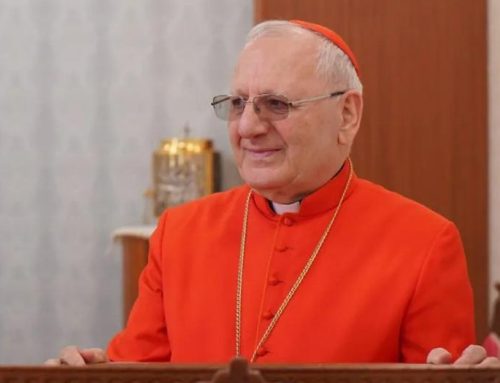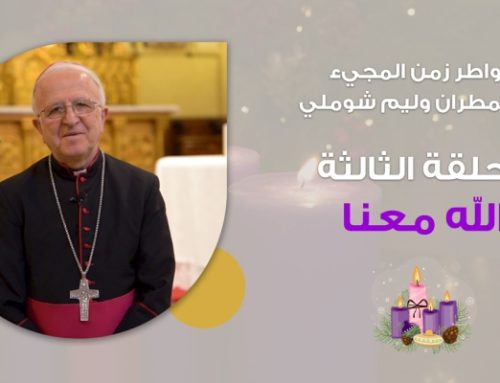Over the past two and a half years in the West Bank, we’ve received many phone calls and e-mails asking some variation on the question, “When are you coming home?” When violence erupted in response to Ariel Sharon’s provocative Temple Mount/Haram al-Sharif visit, we were asked.
Over the past two and a half years in the West Bank, we’ve received many phone calls and e-mails asking some variation on the question, “When are you coming home?” When violence erupted in response to Ariel Sharon’s provocative Temple Mount/Haram al-Sharif visit, we were asked. But Jerusalem can be a long way away from our little Zababdeh. When a mob of Palestinians lynched two Israeli soldiers in Ramallah, the Israeli army bombed civil and government targets in Palestinian towns, and internationals began leaving, we were asked. But Gaza and Ramallah are still pretty far. When gunfights erupted near the Israeli military camp at the edge of Zababdeh, we were asked again. But the camp and gunfights were way over on the other side of town from us.
Since then, the violence spiraled deeper and deeper, taking its toll on thousands of lives, limbs, homes, lands. But friends and family had mostly stopped asking us when we’d leave. We knew our way around, spoke passable Arabic, the locals knew us. We’d stuck around this long – there wasn’t any use in trying to talk sense into us at this point. But then there was the particularly deadly suicide bombing last Passover, linked to nearby Jenin. Our telephones were cut, our schools were closed, and tens of thousands of Israeli reservists were called up for military duty in the Territories. No one knew what would happen, but everyone knew it could be very bad. We were afraid for our safety and, without school or internet, we couldn’t do much of our work. There was no need for persuasive emails; we made the very difficult decision to leave Zababdeh, fleeing across the border to the quiet safety of Nazareth.
We were only gone for a month, but many people back home assumed we’d left for good. Perhaps it was our poor communication, but more likely it was collective wishful thinking that we’d finally come to our senses.
Now the emails and phone calls have started again. It’s a blurry chorus of reason and rumor: “We’re going to war in Iraq.” “Yeah, there’re some peace movements, but at this point, it’s inevitable.” “Saddam will send scuds/nerve gas/smallpox at you!” “The Arab anti-American backlash will put you in danger.” “The American government has called for a full evacuation of Americans in the Middle East!
Don’t you have to leave?” “When does your flight arrive?”
Yet here we are.
We’re still here because we believe. We came here out of a commitment to serve the Church in the land of its birth, to be in solidarity with our brothers and sisters in Christ. What our American government says or does cannot change that calling, or pry us from this place. Our presence here (in Zababdeh, Nazareth, Jerusalem, or elsewhere) is a religious calling, not a political affiliation. The cross overshadows the crown, not the other way around.
We’re still here because we hope. We hope that war will be avoided, for nothing made by human hands is inevitable. We hope that nationalism and fanaticism will not have their way, that the rift between East and West will not become an impassible chasm, swallowing up lives and hopes for a peaceful future. We feel strongly that this is a time for peacemakers, not warmongers. For those of you who share our conviction, we love you dearly. Struggle with us. Pray with us. Work with us as seekers of peace. If you disagree, we love you dearly. And we challenge you. For this is a time for turning swords into ploughshares, a time for us to turn to the long hard work of cultivating peace, not to the deception of a “quick and clean” war.
We are still here, because we love. We love the people of this region. From Baghdad to Beirut, we have visited them, eaten with them, laughed and cried with them, worshiped and prayed with them. Having done so, it’s impossible for us to think of them as the enemy – or as candidates for collateral damage. Arab, Christian, Muslim, Jew, they have become our brothers and sisters, fellow children of God trying to carve out life in a region of imported death. For their sake, for our sake, and for God’s sake, we continue to do what we can to bring peace here. Those of you sending us emails and making phone calls, before you ask us to come home again, we ask the same of you, to do everything in your power to stop this disastrous war.
So we’re still here because we’re still called to work and minister here. But don’t worry; we’re not seeking our own martyrdom. But we haven’t bought those plane tickets yet.
———————
Marthame and Elizabeth Sanders are American
Presbyterians working in the Palestinian Christian village of Zababdeh.





